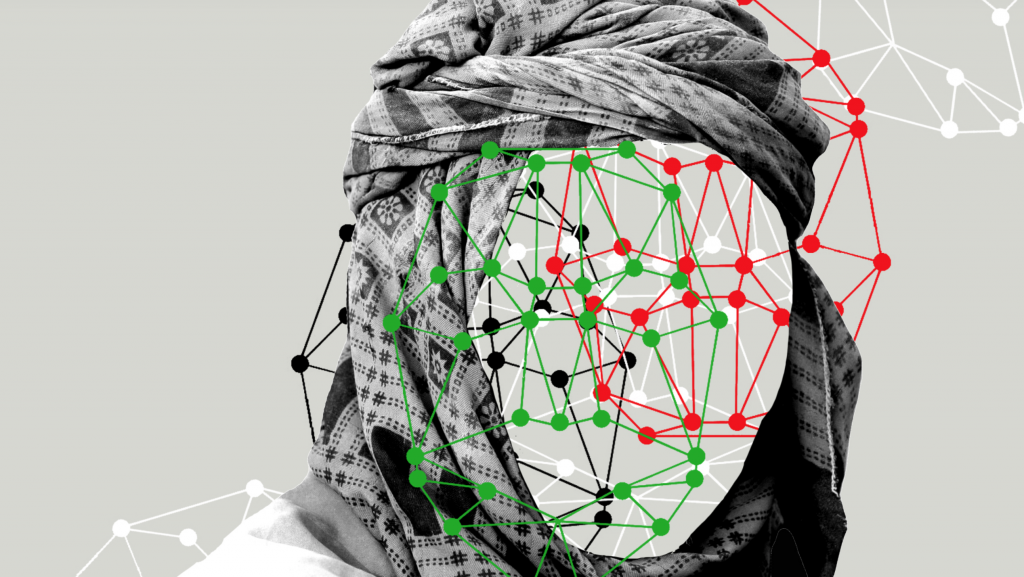
Illustration of a Taliban fighter with biometric measurements. (Source: Andrea Daquino for TechnologyReview.com)
Biometric Data Offsite; Government Databases Contain Sensitive Info
When the U.S. military left Afghanistan, it left behind years’ worth of information on people, embedded within its government-operated computer systems. While some were worried about biometric data that could be used against those who aided Americans, much of that, fortunately, will not be accessible because it was stored offsite on secure servers.
According to a story in MIT’s technologyreview.com, the concerns over how the technology could be used by Taliban extremists are valid, however.
“MIT Technology Review spoke to two individuals familiar with one of these systems, a U.S.-funded database known as APPS, the Afghan Personnel and Pay System. Used by both the Afghan Ministry of Interior and the Ministry of Defense to pay the national army and police, it is arguably the most sensitive system of its kind in the country, going into extreme levels of detail about security personnel and their extended networks.”
The databases were created to cut back on fraud by “ghost soldiers” who were collecting paychecks without serving in the Afghani military under the guidance of the U.S. The information includes 36 data points for police. Information includes names, dates, and places of birth, as well as a unique ID number that connects each profile to a biometric profile kept by the Afghan Ministry of Interior. It also contains details on specialties, careers and names of family members and even tribal elders who vouched for them.
“This turns what was a simple digital catalogue into something far more dangerous, according to Ranjit Singh, a postdoctoral scholar at the nonprofit research group Data & Society who studies data infrastructures and public policy. He calls it a sort of ‘genealogy’ of ‘community connections’ that is ‘putting all of these people at risk.’ “
While the Taliban has said it won’t retaliate against past police and military personnel, no one believes them. The UN has already had reports of civilians being executed.
” ‘I wouldn’t be surprised if they looked at the databases and started printing lists based on this…and now are head-hunting former military personnel,’ one individual familiar with the database told us.”
When the U.S. tracked personal information to break up bomb-making groups, it collected a lot of material. Some Afghan National Army members have left the country to protect themselves.
“Singh says the issue of what happens to data during conflicts or governmental collapse needs to be given more attention. ‘We don’t take it seriously,’ he says, ‘But we should, especially in these war-torn areas where information can be used to create a lot of havoc.’ “
The lack of interoperability between databases and storage of some information offsite may help keep some of those who fear being executed from harm.
read more at technologyreview.com







Leave A Comment